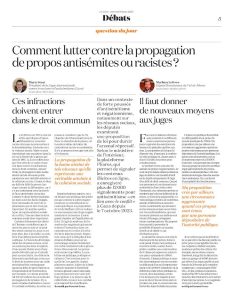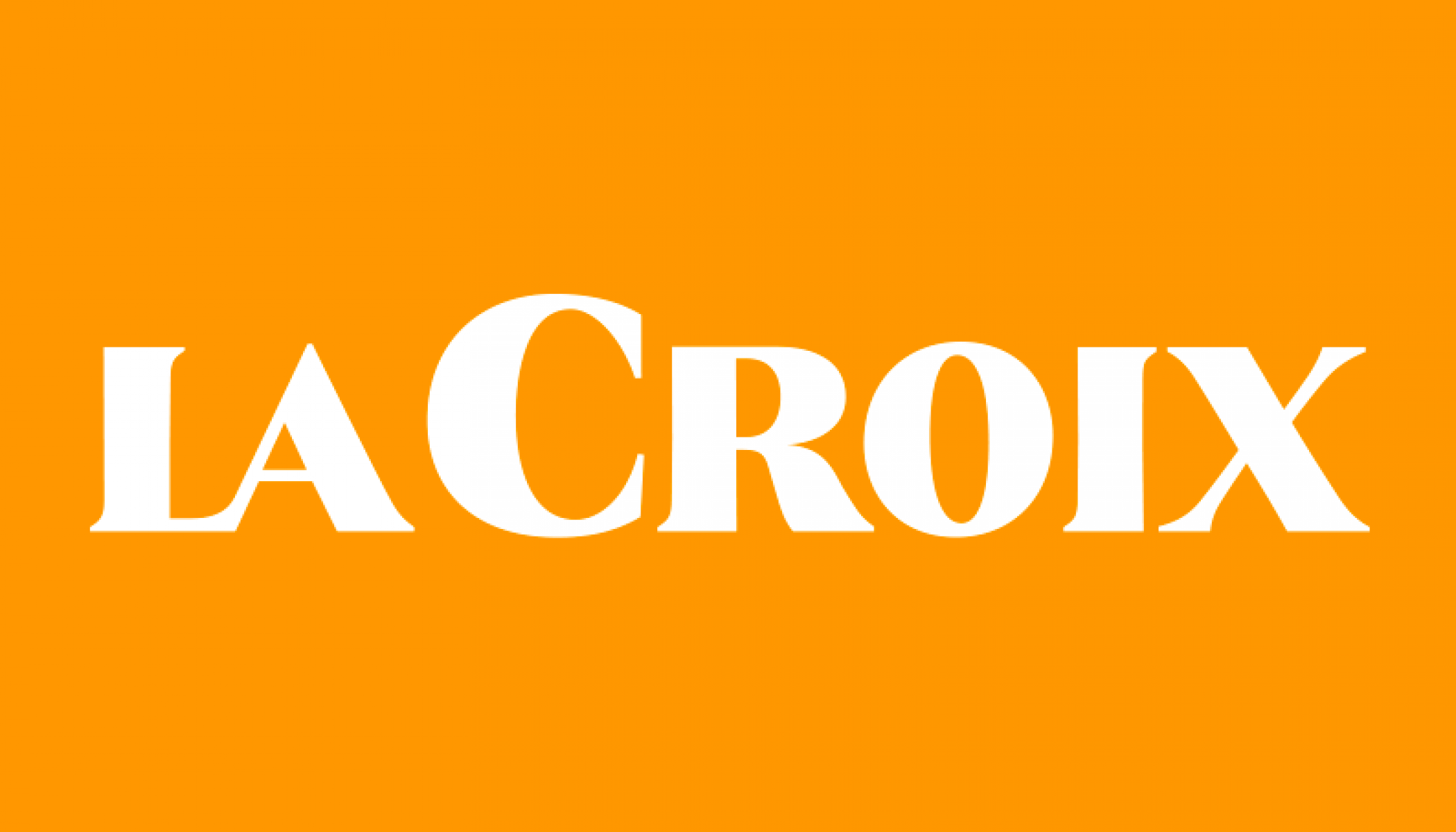Mario Stasi in La Croix, Wednesday, March 6, 2024
The 1972 Pleven law created the specific offenses of racist insult, defamation and incitement to racial discrimination, hatred or violence. But this text introduced an exception to the law on freedom of the press, which dates back to 1881. The Licra is campaigning to break out of this framework and bring these offenses within the scope of ordinary law. Today, the spread of hatred has reached such levels that it represents a real threat to social cohesion. The issue goes far beyond the classic press offence of defamation, because there is a continuum between anti-Semitic or racist speech and action. As Robert Badinter once said, words are loaded guns. We need to get away from this phantasm that the word isn’t important. In terms of the symbolism and social representation of this offence, it would therefore be important to make it part of common law. Some defenders of human rights consider that the word is not an act and cannot be treated as such, but in the face of reality, we can no longer be satisfied with a purely philosophical debate. With the development of social networks, we’re no longer in the register of liberated speech, but of unbridled speech with no limits. Aside from the symbolic dimension, press law sets out a highly restrictive procedural framework, in terms of the statute of limitations and the organization of investigations, for example. This procedural straitjacket makes the lawyers of hate-mongers very happy. There are also certain habits to break. A certain snobbery, a kind of “entre-soi”, leads us to consider that the 17th chamber of the Paris judicial court, the press chamber, is the only one able to deal with racist or anti-Semitic litigation. There’s no reason why all this shouldn’t evolve. For several years now, France has had a policy of taking small steps to gradually remove this type of litigation from its specific framework. Mathieu Lefèvre’s bill is a further and necessary step in this direction. The other major project is the application of the law. The aim is to reinforce the training of magistrates who will have to conduct investigations in these cases, and to ensure the severity of the penal response. Let’s not forget that it took more than a dozen cases before someone like Dieudonné was finally sentenced to prison. In many cases, penalties are still too low. The problem is legal, political and cultural. That’s why, for several years now, the Licra has been calling for the fight against racism and anti-Semitism to become a major national cause, in order to promote a truly global policy. The resources that the community devotes to this fight are currently insufficient.
Bernard Gorce




